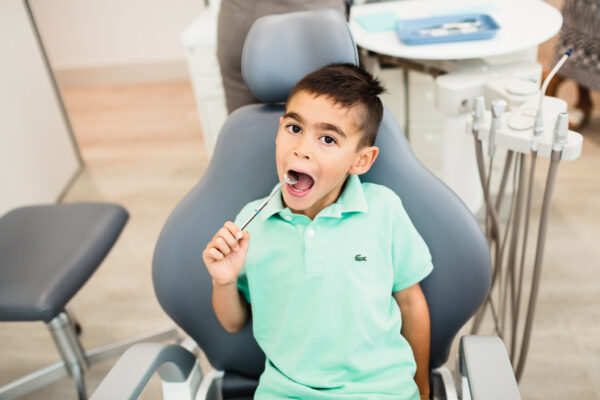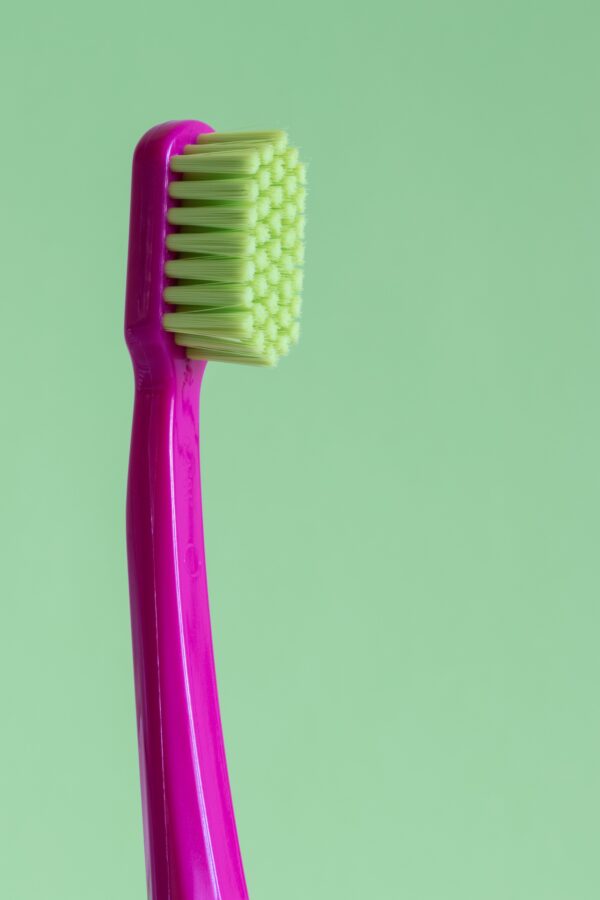
Preventative Plan
Having your child on a regular schedule of routine dental visits is essential. For example, regular checkups help detect cavities early and allow your child to receive regular professional cleanings and fluoride treatments.


As cavities are the most common chronic disease in Canadian children, prevention is critical. Starting out right with a strong preventative dental healthcare plan will set your child up for a lifetime of good oral health and healthy teeth.

Having your child on a regular schedule of routine dental visits is essential. For example, regular checkups help detect cavities early and allow your child to receive regular professional cleanings and fluoride treatments.
Most often we see a child for their first dental checkup by age one, as recommended by Canadian Academy of Pediatric Dentistry. However, if your newborn baby has lip tie or tongue tie or latching issues, we recommend making an appointment right away.
X-rays are a vital preventative plan component for your child when receiving dental care. As diagnostic tools, they allow us to see things not visible to the naked eye. Cavities, the presence and location of adult teeth, hidden damage and other pathologies are found with the use of x-rays.
We typically start taking x-rays around ages 3 to 4. The marker is when a child’s teeth touch together and their behaviour allows it. At Playtime, we will always child-size the x-rays to minimize radiation to your child. We have the latest digital x-ray equipment and an exceptional team who excel at taking x-rays for children.
An important part of prevention is sealing teeth after a professional cleaning. We offer protective sealants for baby and adult teeth. This is especially beneficial if your child’s teeth have deep grooves or are prone to cavities. Placing protective coatings on both baby and adult teeth reduces the risk of cavities.
Fluoride helps prevent tooth decay by making the tooth more resistant to acid attacks from plaque, bacteria and sugars in the mouth. It also strengthens weakened tooth enamel, reverses early tooth decay, limits the growth of oral bacteria and slows the loss of minerals from tooth enamel.
We follow the Canadian Academy of Pediatric Dentistry guidelines and recommend low-dose fluoride toothpaste daily and fluoride varnish application in the office to strengthen the enamel to make teeth more resistant to cavities. This is especially important in the Lower Mainland as there is no fluoride in the water. We would be happy to discuss how much fluoride is a safe amount for your child.



The Canadian Dental Association recommends the assessment of infants, by a dentist, within six months of the eruption of the first tooth or by one year of age.
Playtime Pediatric Dentistry offers a fun and friendly environment for your child to make sure they get a lifetime of positive experiences at the dentist. We use child-friendly language and behaviour management skills so that your child will have a pleasant visit.
Some kids can feel anxious about a new experience, including a dental visit. This is normal. To help them feel more comfortable, it can help to “play dentist,” read books about a dental visit, or look at the Playtime website and social media pages together for pictures and videos of the Playtime office and team. If you have dental anxiety, try your best to not transfer your own anxiety to your child.
No, you do not need a referral from your family dentist to see our pediatric dentists.
The first visit involves an examination to check for signs of weak enamel along with a professional cleaning. We will discuss at-home care with you and review optimal oral hygiene and the best diet for healthy teeth.
We recommend teeth cleaning at a young age to:
Remove plaque and calculus (calcified plaque)
Some kids are prone to plaque build up and need polishing and scaling. We have seen this in children even as young as age one.
Provide a positive dental experience
By showing children from a young age that regular checkups are easy and fun, they can develop positive feelings about dental visits. The kids who get repeated early exposure tend do better in subsequent visits, including treatment.
Assess behaviour
Each visit, we evaluate your child’s behaviour using the Frankl scale. Some kids are sensitive to taste, vibration water or suction, and cleaning is a good way to determine your child’s cooperation level, temperament and sensory issues. This information will come in handy if your child ever gets into an accident or gets cavities and needs treatment. Considering 40% of kids get cavities by age 5, we want this information as soon as possible so we can determine the optimal treatment. For example, a child who cannot easily handle cleaning at age 4 will likely need general anesthesia for treatment.
Reach milestones as soon as possible
We keep a note of every milestone your child achieves at each visit. It can be as simple as sitting in the dental chair alone to having x-rays. We don’t move on to the next step without hitting the previous milestone. For instance, we won’t take x-rays on a child who cannot handle polishing. We usually start taking x-rays as soon as two contact teeth are tight (ages 3 or 4) and we cannot check between teeth visually.
We have lots of helpful tips and extensive experience in dealing with many different age groups with special needs and medical backgrounds. Having undergone extensive training at various children’s hospitals in North America, all our pediatric dentists are very familiar with different medical conditions and dental precautions.
The PPD team are so wonderful with our kids. They actually look forward to their visits. My kids also use the tools and advice the PPD team taught them about dental hygiene. They are proud when they find “sugar bugs” when they floss 🙂
C.B.